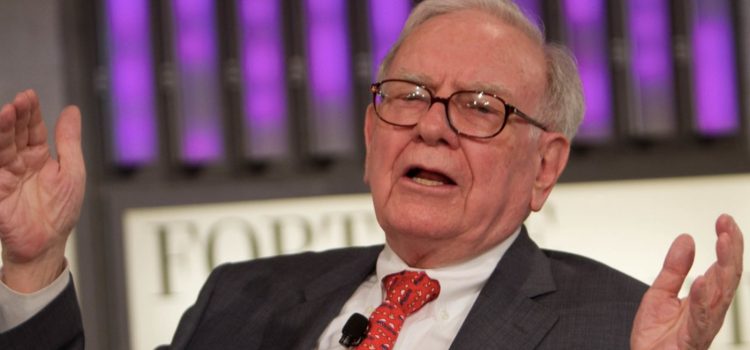

This article is an excerpt from the Shortform book guide to "The Snowball" by Alice Schroeder. Shortform has the world's best summaries and analyses of books you should be reading.
Like this article? Sign up for a free trial here.
What was Warren Buffett’s early life like? How did his childhood shape his career?
According to Alice Schroeder’s book The Snowball, Warren Buffett didn’t have the greatest childhood. However, it was instrumental in building the man he is today and the success he built.
Read below to learn more about the early life of Warren Buffett.
Buffett’s Beginnings
Unlike other giants in the field of business, Warren Buffett would never claim to be a “self-made man.” In fact, he would often gladly admit that his life was shaped by his family, his teachers, and the era into which he was born. Schroeder explains how Buffett was molded by the example of his parents, his fascination with numbers, the economics of the Depression, and the ideas he was exposed to in school.
In Warren Buffett’s early life, the Buffetts were a long-established family of grocers in Omaha, Nebraska, but were never wealthy or members of the elite. Warren’s father Howard became a stockbroker shortly before the crash of 1929. While the rest of the economy dwindled, though, Howard Buffett succeeded by dealing in stable securities and bonds. Schroeder says he prized integrity overall, a trait that got him elected to Congress in 1942. Of all his father’s characteristics, it was how he stuck to his principles and expounded on his beliefs that Warren Buffett would emulate throughout his life.
(Shortform note: Like Buffett’s father, there were others who found success during the Great Depression. Joseph Kennedy Sr., patriarch of the famous Kennedy family, recognized that the market was overvalued and sold off the majority of his stock prior to the crash. Floyd Bostwick Odlum, a utilities investor, also saw the trend and cashed out. After the downturn, he used his liquid assets to buy up failing companies at discount prices, a practice that Buffett would later employ.)
Warren’s mother Leila Stahl Buffett grew up working the presses at her father’s newspaper, the Cuming County Democrat. She and Howard Buffett met in college, and they had three children—Doris, Warren, and Roberta. Howard and Leila Buffett frowned upon any displays of emotion from their children, but Schroeder writes that in addition to that, Leila was verbally abusive, especially toward Doris, though Warren was a frequent target as well. This gave him an aversion to conflict and a lifelong fear of disappointing others.
(Shortform note: In Emotional Intelligence, Daniel Goleman lists ignoring feelings and treating them with contempt as two distinct harmful parenting behaviors that lead children to develop issues with anger and depression. While Buffett was able to dodge those two pitfalls, he did grow up to be a people-pleaser, which Brené Brown, in her book Daring Greatly, says is a symptom of perfectionism arising from internalizing a parent’s negative criticism.)
Buffett’s Introduction to Finance
Warren Buffett was born on August 30, 1930, as the Great Depression was sweeping the country. As an introverted child with an abusive mother, young Warren found safety in the hidden world of numbers. Schroeder recounts that he was fascinated by baseball statistics and calculating odds in games such as bridge. When he was 10, his father took him to the New York Stock Exchange, which impressed upon Buffett that becoming wealthy would grant him independence from other people’s demands and expectations. At the age of 11, he announced to his friends that he wanted to be a millionaire by the age of 35.
(Shortform note: Though Buffett grew up hearing about finance from his father, it was his peek “behind the curtain” that made the most lasting impression. The brokers on Wall Street had spent the last 10 years working hard to rebuild their prosperity and reputation. When Buffett first visited in 1940, the Dow Jones Industrial Average had recently hit its highest peak between the crash of 1929 and the start of WWII. Though the Dow had been on the road to recovery, the threat of war in Europe and the Pacific slowly pushed stocks down to near post-Depression prices. However, coinciding with the US victory at Midway in 1942, the market turned around and soared for the rest of the decade.)
Buffett was turned down by the Harvard Business School, but when he learned that business author Benjamin Graham was teaching at Columbia University, he chose to apply there too. Schroeder says that Graham did more than anyone else to shape Buffett’s ideas on investing. Graham taught that stocks are more than numbers—they represent the real value of companies. He developed a way to calculate a company’s actual worth and suggested that if its stock price was lower than it should be, that price would eventually rise to its true value, despite any short-term market fluctuations. The trick was finding those undervalued stocks.
According to Schroeder, this appealed to Buffett in the strongest possible way. Graham’s method merged the pursuit of wealth with Buffett’s love of collecting statistics and hunting through numerical data. Most of all, it framed Buffett’s lifelong dream of independence through wealth as something that could be fulfilled through persistence, level-headedness, and patient dedication.
Investing According to Graham
Benjamin Graham’s ideas on money are spelled out in The Intelligent Investor, first published in 1949. Graham differentiates between thoughtful investors and speculators—also called “day traders.” The speculating class of investors, he says, are led by emotion and irrational optimism while chasing short-term gains and following the whims of the market.
Graham divides the rest of the investing world into “defensive” and “aggressive” investors. Defensive investors wish to make money simply and safely without putting too much effort into investment decisions. Aggressive investors, on the other hand, put all their time and energy into making well-researched investments, in effect pursuing investing as a full-time profession. Warren Buffett clearly falls into this latter category.

———End of Preview———
Like what you just read? Read the rest of the world's best book summary and analysis of Alice Schroeder's "The Snowball" at Shortform.
Here's what you'll find in our full The Snowball summary:
- A biography of one of the wealthiest people in the world, Warren Buffett
- Why Buffett is known for his honesty and wisdom, just as much as his wealth
- How Buffett's life was shaped by his family, his teachers, and the era into which he was born






